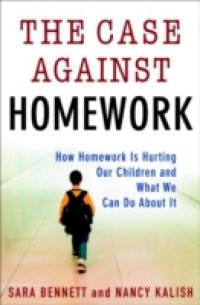Does assigning fifty math problems accomplish any more than assigning five? Is memorizing word lists the best way to increase vocabularyespecially when it takes away from reading time? And what is the real purpose behind those devilish dioramas? The time our children spend doing homework has skyrocketed in recent years. Parents spend countless hours cajoling their kids to complete such assignmentsoften without considering whether or not they serve any worthwhile purpose. Even many teachers are in the dark: Only one of the hundreds the authors interviewed and surveyed had ever taken a course specifically on homework during training. The truth, according to Sara Bennett and Nancy Kalish, is that there is almost no evidence that homework helps elementary school students achieve academic success and little evidence that it helps older students. Yet the nightly burden is taking a serious toll on Americas families. It robs children of the sleep, play, and exercise time they need for proper physical, emotional, and neurological development. And it is a hidden cause of the childhood obesity epidemic, creating a nation of homework potatoes.In The Case Against Homework, Bennett and Kalish draw on academic research, interviews with educators, parents, and kids, and their own experience as parents and successful homework reformers to offer detailed advice to frustrated parents. Youll find out which assignments advance learning and which are time-wasters, how to set priorities when your child comes home with an overstuffed backpack, how to talk and write to teachers and school administrators in persuasive, nonconfrontational ways, and how to rally other parents to help restore balance in your childrens lives. Empowering, practical, and rigorously researched, The Case Against Homework shows how too much work is having a negative effect on our childrens achievement and development and gives us the tools and tactics we need to advocate for change.Also available as an eBookFrom the Hardcover edition.

